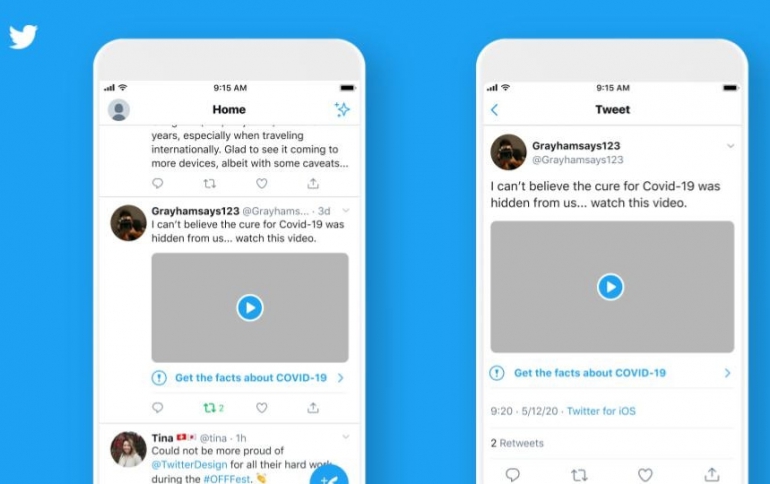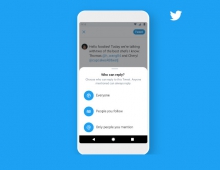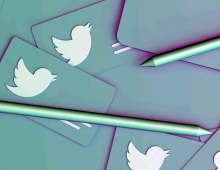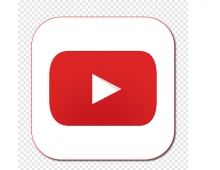
Twitter Launches Labels to Warn On Misleading COVID-19 Information
Twitter Inc will add labels and warning messages on some tweets with misleading information about COVID-19, the company said on Monday, as part of a new approach to misinformation that will eventually extend to other topics.
The new labels and warning messages will provide additional context and information on some Tweets containing disputed or misleading information related to COVID-19.
In March, Twitter broadened its policy guidance to address content that goes directly against guidance on COVID-19 from authoritative sources of global and local public health information. Moving forward, the company may use these labels and warning messages to provide additional explanations or clarifications in situations where the risks of harm associated with a Tweet are less severe but where people may still be confused or misled by the content.
Earlier this year, Twitter introduced a new label for Tweets containing synthetic and manipulated media. Similar labels will now appear on Tweets containing potentially harmful, misleading information related to COVID-19. This will also apply to Tweets sent before today.
These labels will link to a Twitter-curated page or external trusted source containing additional information on the claims made within the Tweet.
Depending on the propensity for harm and type of misleading information, warnings may also be applied to a Tweet. These warnings will inform people that the information in the Tweet conflicts with public health experts’ guidance before they view it.
Twitter will take action based on three broad categories:
- Misleading information — statements or assertions that have been confirmed to be false or misleading by subject-matter experts, such as public health authorities.
- Disputed claims — statements or assertions in which the accuracy, truthfulness, or credibility of the claim is contested or unknown.
- Unverified claims — information (which could be true or false) that is unconfirmed at the time it is shared.
Social media sites, including Facebook Inc and YouTube, the video service of Alphabet Inc’s Google, are under pressure to combat misinformation that has spread on their platforms about the COVID-19 pandemic caused by the new coronavirus.
Such false claims have ranged from bogus cures to misinformation linking the virus with conspiracy theories about high-profile figures such as Microsoft co-founder Bill Gates or about 5G mobile phone technology.





















